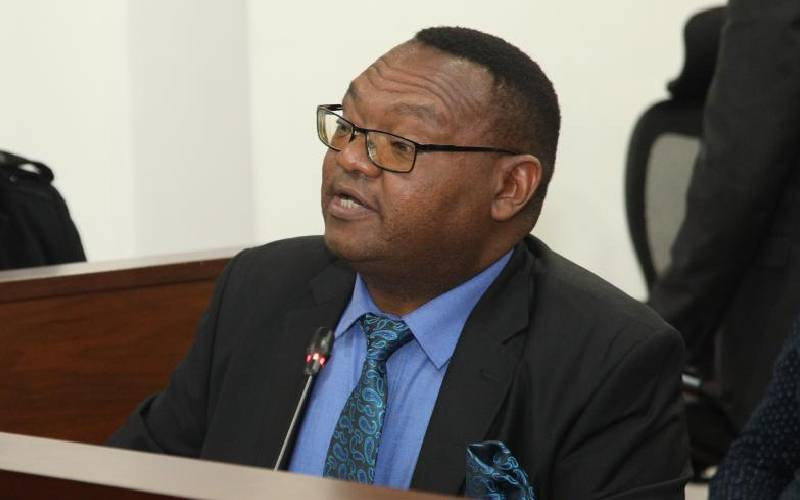
Scrap metal dealers have appealed to the government to urgently protect the industry, which is threatened by importation of low priced materials into the country.
Scrap Metal Dealers Association national chairman, Evans Ng’ang’a has written to Trade and Industrialisation Cabinet Secretary Lee Kinyanjui, to intervene and address the recent importation of steel reinforcement and steel billet into the country.
Ng’ang’a insisted that the metal recycle industry has enough capacity to sustain all steel millers with scrap metal as a raw material making it unnecessary for importation.
“I wish to address the recent importation of steel reinforcement and steel billet into the country… We seek your indulgence in protecting both the scrap metal and steel industry by regulating the imports, which have had a serious effect. We look forward to a future engagement,” said the association chairman in the letter dated April 7, 2025.
Ng’ang’a also insisted that the metal recycle industry is a source of employment for many Kenyans who earn a living through the trade of scrap metal to steel smelting companies, which is then processed into steel bars for construction industries.
He however, regretted that the metal recycle industry is threatened by cheap steel reinforcing bars and steel billets.
“Sir, the metal recycle industry has enough capacity to sustain all the steel millers with scrap metals as raw materials making it unnecessary for import,” he insisted.
This comes against the backdrop of concerns over harassment by county officials in Nairobi, targeting licensed scrap metal dealers.
Last week, Ng’ang’a said that members have consistently complied with county requirements but dealers have been complaining of alleged frequent visits at their yards by the Environment Department officials, who have been demanding to see licenses, soliciting bribes, and making arbitrary arrests.
“We normally receive memos from the county of any licenses due to be paid, which our members gladly pay through our office,” he said, adding, “This time, enforcement officers from the Environment Department are making arbitrary arrests of our members and demanding very hefty bribes,” he said.
He called up on the count government to rein in staff, who are arresting genuine dealers and demanding for bribes.
The association has been insisting that it runs legitimate businesses and pledged to collaborate with Government to identify culprits who spoil their trade.
“We thank our government for issuing licenses to our scrap metal dealers, because this has brought the vandalism rate down by 60 per cent,” the chairperson said last year.
The Scrap Metal Council (SMC) in collaboration with Kenya Trade Network Agency (KenTrade) last month issued a notice to its stakeholders on the automation of imports and exports of consignments effective March 15.
Stay informed. Subscribe to our newsletter
The council said the automation is designed to ensure smooth and efficient cross-border scrap metal trading and upon registration and licensing by SMC, dealers would be required to apply for export and import permits through the trade facilitation platform.
“Refresher training on the automated processes and clearance protocols on the trade facilitation platform will be conducted by KenTrade upon request,” read the notice.
Last May, the SMC raised concerns over resurgence of vandalism of the critical national infrastructure and resolved to suspend renewal and issuance of export licenses and announced renewed commitment to map and vet scrap metal dealers in the country.
By December, the SMC said that it had stabilised the sector, through an amendment to the Scrap Metal Act designed to strengthen the regulatory framework, curb vandalism and bring all scrap metal dealers under formal regulation.
The SMC also insists that it has taken measures to address the long-standing challenges that had threatened the sector’s integrity and contribution to Kenya’s economy.



